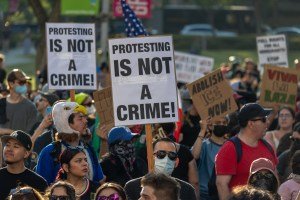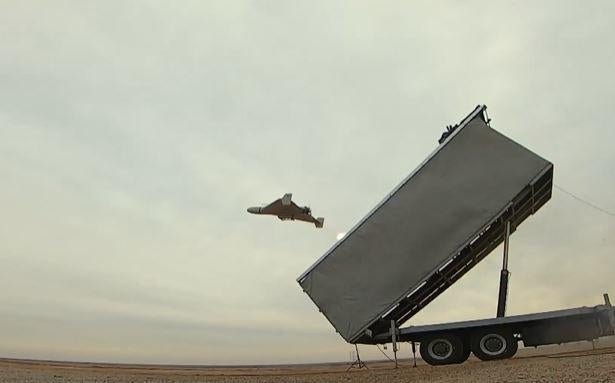ISTANBUL—Moscow’s chief negotiator in peace talks with Kyiv was a lead architect of the historical revisionism that drove Russia to invade Ukraine.

Now, Vladimir Medinsky is drawing on his view of history again as he tries to convince Ukraine that it would be better off unwinding its integration with the West and embracing Moscow’s terms for peace.
“With Russia, it’s impossible to fight a long war,” Medinsky said in an interview with The Wall Street Journal, citing Russia’s 21-year war with Sweden in the 18th century as evidence that the country prevails in protracted fights.
Medinsky, who spoke to the Journal after the latest round of negotiations in Istanbul, played down the impact of Ukraine’s recent drone assault that destroyed at least 12 Russian bombers, saying that it hadn’t cast a cloud over talks.
The talks yielded no breakthrough, though the sides have agreed on a series of prisoner exchanges. President Trump, who has been pushing for a peace deal, said last week that he might let the two sides “fight for a while.” Medinsky warned that a lack of compromise from Kyiv would only lead to more territorial losses.
“We want peace,” he said. “But if Ukraine keeps being driven by the national interests of others, then we will be simply forced to respond.”
Ukraine has long argued that it is precisely this kind of rhetoric—echoed in regular statements by Russian President Vladimir Putin—that has prevented any breakthrough in peace talks between Kyiv and Moscow.
It contends that the only Russian with a mandate to decide the terms of a truce with Ukraine is Putin, and the negotiators sent by him to Istanbul were simply messengers for the Kremlin—though Ukrainian officials acknowledge Medinsky has played a role in arranging crucial prisoner swaps.
“Russians don’t want peace,” said Ukraine’s former defense minister, Andriy Zagorodnyuk, who currently advises the Ukrainian government. “And we don’t need Medinsky to prove this to us.”
Ukrainian officials say Medinsky, during talks in Istanbul, has routinely turned to questionable interpretations of conflicts from past centuries to try to press his points on the Ukrainian team.
It is through interpretations of the past that Medinsky, a bespectacled, stern 54-year-old, first achieved prominence in political circles.
In the 2000s, he penned a series of popular history books titled “Myths about Russia,” in which he assailed primitive clichés about Russian drunkenness and cruelty, examined the concept of a “Russian soul,” and railed against claims that Russians are authoritarian at heart.
As Putin’s culture minister between 2012 and 2020, he pushed a more positive vision of Russia’s past. The ministry sponsored a number of historical action movies—at least three of them about World War II-era tanks—with thin plotlines and video game-style shootouts that were popular with cinema audiences. Medinsky also oversaw the construction of statues to Russian historical figures across the country.
The senior Putin aide has co-written Russian textbooks that have been introduced as part of a sweeping reorientation of the curriculum toward what the Kremlin calls “patriotic education” that plays down the dark pages of Russia’s past and justifies the war in Ukraine, which Moscow calls a “special military operation.”
At the June 2022 presentation of another history book series, he noted past Russian statesmen who contributed to the country’s rapid territorial expansion over the centuries. “Now it’s a bit smaller,” he said of Russia’s territory. “But that’s not forever.”
Mikhail Zygar, a Russian author and expert on Putin’s inner circle, has alleged that Medinsky is the ghostwriter for many of Putin’s historical texts, including a June 2021 essay that denied Ukraine’s right to statehood and introduced many themes Putin would later invoke to justify the invasion. Medinsky said he has been involved in writing notes and preparing documents for Putin, but doesn’t write the texts.
He has headed up Russia’s delegation in talks with Ukraine since 2022, which Kyiv abandoned after Russia withdrew from Ukraine’s capital and surrounding areas, and left behind evidence of atrocities that hardened Kyiv’s stance.
Medinsky, in his interview with the Journal, said the West’s mistake is that it views the war in Ukraine as something similar to a conflict between England and France—two countries with their own distinct histories and cultures. He argued that the war with Ukraine is instead a fratricidal fight between two states with a common language and culture that are essentially one people and are destined to be close allies.
“This is like a conflict between two brothers—one older and one younger—about who is smarter and more important,” he said. “This conflict sadly deepens our differences, and that’s why we want it to end as soon as possible.”
Ukraine has said Russia’s view of Ukrainians as younger brothers in the same family is the kind of language that masks expansionist ambitions at the core of Moscow’s campaign.
“If Russia claims to be a ‘brother’ to any Central or Eastern European nation, it is the Cain in the story, already holding the stone,” said Heorhii Tykhyi, spokesman for Ukraine’s foreign ministry.
Medinsky has warned Ukrainians that long wars with Russia end in inevitable defeat for its enemies. He cited the Great Northern War at the start of the 18th century, which pitted Peter the Great against the Swedish Empire.
Peter had proposed a truce that would leave in Russia’s hands only the territory of modern-day St. Petersburg, with its access to the Baltic Sea. Sweden refused and launched an ill-fated march on Moscow that ended with its crushing defeat at the Battle of Poltava in Ukraine and its later loss of the Baltic provinces.
Putin has invoked that war as inspiration for the war in Ukraine, arguing that Russia today is taking back territory that rightfully belongs to it.
“That war would go on for 21 years,” Medinsky said of the fight with Sweden. “We don’t want [that]. We want peace.”
But some long wars fought by Russians have ended in defeat, including a nearly decadelong invasion of Afghanistan that drained Moscow’s resources and ended in 1989 with a military withdrawal that accelerated the Soviet collapse two years later.
Western officials say Russia has suffered more than 10 times as many casualties in Ukraine as the Soviet Union did during the entire Afghan campaign.
Write to Matthew Luxmoore at matthew.luxmoore@wsj.com








![The father (in the blue shirt) of Irfan, one of the flight crew killed when the Air India plane crashed, at the hospital [ Marhaba Halili/Al Jazeera]](https://koala-by.com/wp-content/uploads/2025/06/WhatsApp-Image-2025-06-13-at-12.35.03-AM-1749795965.jpeg)
